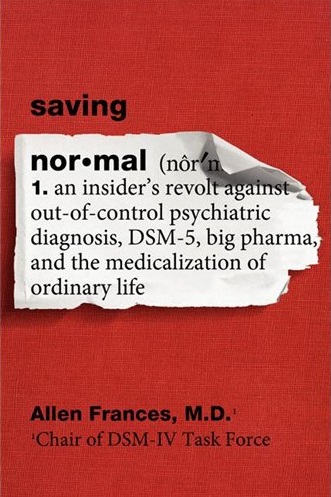 “‘Mental illness’ is terribly misleading because the ‘mental disorders’ we diagnose are no more than descriptions of what clinicians observe people do or say, not at all well-established diseases.”[1] – Prof. Allen Frances, psychiatrist and former DSM-IV Task Force Chairman
“‘Mental illness’ is terribly misleading because the ‘mental disorders’ we diagnose are no more than descriptions of what clinicians observe people do or say, not at all well-established diseases.”[1] – Prof. Allen Frances, psychiatrist and former DSM-IV Task Force Chairman
“While DSM has been described as a ‘Bible’ for the field, it is, at best, a dictionary…. The weakness is its lack of validity. Unlike our definitions of ischemic heart disease, lymphoma, or AIDS, the DSM diagnoses are based on a consensus about clusters of clinical symptoms, not any objective laboratory measure. In the rest of medicine, this would be equivalent to creating diagnostic systems based on the nature of chest pain or the quality of fever.”[2] – Thomas Insel, Former Director of the National Institute of Mental Health (NIMH)
The Chemical Imbalance Myth
In July 2022, a landmark study by scientists at the University College London, finally disproved the chemical imbalance theory of depression. The study, published in Molecular Psychiatry, was a systemic review of 17 major studies published over several decades and found no convincing evidence to support the chemical imbalance theory. The scientists concluded that the general public had been falsely led to believe that abnormalities in serotonin or other biochemical abnormalities are responsible for their moods when no scientific evidence existed to support the theory. The researchers warned, “In particular, the idea that antidepressants work in the same way as insulin for diabetes is completely misleading. We do not understand what antidepressants are doing to the brain exactly, and giving people this sort of misinformation prevents them from making an informed decision about whether to take antidepressants or not.”[3]
Christopher Lane, Ph.D., author of the blog Side Effects described the study as “a decisive blow to the serotonin hypothesis of depression.”[4]
As evidenced by the quotes below, all issued prior to the publication of the University of College London study, this information was known to the psychiatric profession for decades, yet it took until 2022 for the public to be made fully aware that the chemical imbalance theory had never been supported by scientific evidence.
“We do not have a clean-cut lab test” to determine a chemical imbalance in the brain.”[5] – Dr. Steven Sharfstein, president, American Psychiatric Association in 2005
“I think we can safely say that after a vast amount of research conducted over several decades, there is no convincing evidence that depression is caused by serotonin abnormalities, particularly by lower levels or reduced activity of serotonin.”[6] Further, “Patients should be informed that there is no evidence that antidepressants work by correcting a chemical imbalance, that antidepressants have mind-altering effects, and that evidence suggests they produce no noticeable benefit compared with placebo.”[7] – Prof. Joanna Moncrieff, Professor of Critical and Social Psychiatry at University College London
“Contemporary neuroscience research has failed to confirm any serotonergic lesion in any mental disorder, and has in fact provided significant counterevidence to the explanation of a simple neurotransmitter deficiency…to propose that researchers can objectively identify a ‘chemical imbalance’ at the molecular level is not compatible with the extant science. In fact, there is no scientifically established ideal ‘chemical balance’ of serotonin, let alone an identifiable pathological imbalance.[8] – Jonathan Leo, Ph.D. is an Associate Professor of Neuroanatomy at Lincoln Memorial University in Harrogate TN; Jeffrey R. Lacasse, MSW is a Visiting Lecturer at the Florida State University
While there has been “no shortage of alleged biochemical explanations for psychiatric conditions…not one has been proven. Quite the contrary. In every instance where such an imbalance was thought to have been found, it was later proven false.”[9] – Dr. Joseph Glenmullen, Harvard Medical School psychiatrist, author of Prozac Backlash
“The theories are held on to not only because there is nothing else to take their place, but also because they are useful in promoting drug treatment.”[10] – Dr. Elliot Valenstein Ph.D., author of Blaming the Brain
“Despite nearly 50 years of investigation into the theory that chemical imbalances are the cause of psychiatric problems, studies in respected journals have concluded that there is not one piece of convincing evidence the theory is actually correct.”[11] – James Davies, Senior Lecturer in Social Anthropology and Psychotherapy, University of Roehampton, London; author of Cracked: Why Psychiatry is Doing More Harm than Good
“…modern psychiatry has yet to convincingly prove the genetic/biologic cause of any single mental illness…Patients [have] been diagnosed with ‘chemical imbalances’ despite the fact that no test exists to support such a claim, and…there is no real conception of what a correct chemical balance would look like.”[12] – Dr. David Kaiser, psychiatrist
“There’s no biological imbalance. When people come to me and they say, ‘I have a biochemical imbalance,’ I say, ‘Show me your lab tests.’ There are no lab tests. So what’s the biochemical imbalance?”[13] – The late Dr. Ron Leifer, psychiatrist
“Many of us know that taking paracetamol can be helpful for headaches, and I don’t think anyone believes that headaches are caused by not enough paracetamol in the brain. The same logic applies to depression and medicines used to treat depression..”[14] – Dr. Michael Bloomfield, a consultant psychiatrist and principal clinical research fellow at University College London
The incredible recent advances in neuroscience, molecular biology, and brain imaging that have taught us so much about normal brain functioning are still not relevant to the clinical practicalities of everyday psychiatric diagnosis. The clearest evidence supporting this disappointing fact is that not even one biological test is ready for inclusion in the criteria sets for DSM-5.[15] – Prof. Allen Frances, former DSM-IV Task Force Chairman
DSM: No Science
“The DSM is more a political document than a scientific one. Decisions regarding inclusion or exclusion of disorders are made by majority vote rather than by indisputable scientific data.”[16] – Ofer Zur, Ph.D., et al., The Zur Institute
The “developers of the DSM assume that a group of psychiatrists agree on a list of atypical [new] behaviors, the behaviors constitute a valid mental disorder. Using this approach, creating mental disorders can become a parlor game in which clusters of all kinds of behaviors (i.e. syndromes) can be added to the manual.”[17] “DSM is a book of tentatively assembled agreements. Agreements don’t always make sense, nor do they always reflect reality. You can have agreements among experts without validity. Even if you could find four people who agreed that the earth is flat, that the moon is made of green cheese, that smoking cigarettes poses no health risks, or that politicians are never corrupt, such agreements do not establish truth.”[18] – Professors Herb Kutchins and Stuart A Kirk, authors of Making Us Crazy: DSM – The Psychiatric Bible and the Creation of Mental Disorders
DSM “is the fabrication upon which psychiatry seeks acceptance by medicine in general. Insiders know it is more a political than scientific document. To its credit it says so, although its brief apologia is rarely noted. DSM IV has become a bible and a money making best seller—its major failings notwithstanding. It confines and defines practice, some take it seriously, others more realistically. It is the way to get paid…The issue is what do the categories tell us? Do they in fact accurately represent the person with a problem? They don’t, and can’t, because there are no external validating criteria for psychiatric diagnoses.”[19] – The late Loren Mosher, psychiatrist and former Chief of NIMH’s Center for Studies of Schizophrenia, head of Schizophrenia Research, National Institute of Mental health
To read Loren Mosher’s resignation letter to the American Psychiatric Association, click here As former Chief of Research on Schizophrenia for the US Government’s National Institute of Mental Health, Loren Mosher long maintained that schizophrenia was not a medical disease and that patients diagnosed with schizophrenia fared better without the administration of powerful antipsychotic drugs. For more information click here.
“No behavior or misbehavior is a disease or can be a disease. That’s not what diseases are. Diseases are malfunctions of the human body, of the heart, the liver, the kidney, the brain. Typhoid fever is a disease. Spring fever is not a disease; it is a figure of speech, a metaphoric disease. All mental diseases are metaphoric diseases, misrepresented as real diseases and mistaken for real diseases.” Further, “There is no blood or other biological test to ascertain the presence or absence of a mental illness, as there is for most bodily diseases. If such a test were developed … then the condition would cease to be a mental illness and would be classified, instead, as a symptom of a bodily disease.”[20] – The late Dr. Thomas Szasz, Professor Emeritus of Psychiatry, New York University Medical School, Syracuse
“There are no objective tests in psychiatry-no X-ray, laboratory, or exam finding that says definitively that someone does or does not have a mental disorder…. There is no definition of a mental disorder. It’s bull—t. I mean, you just can’t define it.”[21] – Prof. Allen Frances, psychiatrist and former DSM-IV Task Force Chairman
“The way things get into the DSM is not based on blood test or brain scan or physical findings. It’s based on descriptions of behavior. And that’s what the whole psychiatry system is.”[22] – Dr. Colin Ross, psychiatrist
“Diagnoses frequently and uncritically reported as ‘real illnesses’ are in fact made on the basis of internally inconsistent, confused and contradictory patterns of largely arbitrary criteria. The diagnostic system wrongly assumes that all distress results from disorder, and relies heavily on subjective judgments about what is normal.”[23] – Professor Peter Kinderman, University of Liverpool
“Although diagnostic labels create the illusion of an explanation they are scientifically meaningless and can create stigma and prejudice.”[24] – Dr. Kate Allsopp, University of Liverpool
“Psychiatry [makes]… unproven claims that depression, bipolar illness, anxiety, alcoholism and a host of other disorders are in fact primarily biologic and probably genetic in origin…This kind of faith in science and progress is staggering, not to mention naïve and perhaps delusional.” Further, “It has occurred to me with forcible irony that psychiatry has quite literally lost its mind, and along with it the minds of the patients they are presumably supposed to care for.”[25] – Dr. David Kaiser, psychiatrist
“Perhaps it is time we stopped pretending that medical-sounding labels contribute anything to our understanding of the complex causes of human distress or of what kind of help we need when distressed.”[26] – Professor John Read, Ph.D., University of East London
“Unlike medical diagnoses that convey a probable cause, appropriate treatment and likely prognosis, the disorders listed in DSM-IV [and ICD-10] are terms arrived at through peer consensus.”[27] – Tana Dineen Ph.D., psychologist
“Unlike the rest of medicine, which has developed diagnostic systems that build on an etiological framework, psychiatric diagnostic manuals such as DSM-IV and ICD-10 have failed to connect diagnostic categories with any etiological processes. Thus there are no physical tests referred to in either manual that can be used to help establish a diagnosis.”[28] – Dr. Sami Timimi, UK child & adolescent psychiatrist
“The notion of scientific validity…is related to fraud. Validity refers to the extent to which something represents or measures what it purports to represent or measure. When diagnostic measures do not represent what they purport to represent, we say that the measures lack validity. If a business transaction or trade rested on such a lack of validity, we might say that the lack of validity was instrumental in a commitment of fraud.”[29] – Prof. Jeffrey A. Schaler, Ph.D., retired professor of justice, law, and society at American University, and former member of the psychology faculty at Johns Hopkins University
No Genetic Basis
“In the future, we hope to be able to identify disorders using biological and genetic markers that provide precise diagnoses that can be delivered with complete reliability and validity. Yet this promise, which we have anticipated since the 1970s, remains disappointingly distant.”[30] [Emphasis added] – David Kupfer, Chairman of the American Psychiatric Association’s DSM-5’s Task Force
“[T]he underlying science remains immature…The molecular and cellular underpinnings of psychiatric disorders remain unknown; there is broad disillusionment with the animal models used for decades to predict therapeutic efficacy; psychiatric diagnoses seem arbitrary and lack objective tests; and there are no validated biomarkers with which to judge the success of clinical trials.” [31] – Dr. Stephen Hyman, neuroscientist and former Director of NIMH
Pathologizing Life as “Disorders”
“There are no laboratory tests, neurological assessments, or attentional assessments that have been established as diagnostic in the clinical assessment of Attention-Deficit/Hyperactivity Disorder.”[32] – American Psychiatric Association
“Virtually anyone at any given time can meet the criteria for bipolar disorder or ADHD. Anyone. And the problem is everyone diagnosed with even one of these ‘illnesses’ triggers the pill dispenser.”[33] – Dr. Stefan Kruszewski, psychiatrist
“We do not have an independent, valid test for ADHD, and there are no data to indicate ADHD is due to a brain malfunction.”[34] – Final statement of the panel from the National Institutes of Health Consensus Conference on ADHD
“This whole trend toward giving pills to children as a solution to everything, particularly in the absence of evidence that they work, is fundamentally unethical. It’s driven by the convenience of the doctor, the profitability of the drug company and the notion that there is nothing more meaningful to life than biochemistry.”[35] Furthermore, “ADHD is a prime example of a fictitious disease.”[36] – The late Dr. Leon Eisenberg, “scientific father of ADHD,” leader in child psychiatry for more than 40 years
“There is no evidence to suggest there is a medical condition called ADHD. It is a cultural concept, which is creating a market in various labels…. There’s money in it.”[37] – Dr. Sami Timimi, UK child & adolescent psychiatrist
For “mental/psychiatric disorders in general, including depression, anxiety, schizophrenia and ADHD, there are no confirmatory gross, microscopic or chemical abnormalities that have been validated for objective physical diagnosis.” [38] – Dr. Supriya Sharma, Director General, Department of Health, Canada
“All psychiatrists have in common that when they are caught on camera or on microphone, they cower and admit that there are no such things as chemical imbalances/diseases, or examinations or tests for them. What they do in practice, lying in every instance, abrogating [revoking] the informed consent right of every patient and poisoning them in the name of ‘treatment’ is nothing short of criminal.” – Dr. Fred Baughman Jr., pediatric neurologist, author of The ADHD Fraud
The DSM went “far beyond pathologizing the problems of war veterans” [re PTSD] It “has become the label for identifying the impact of adverse events on ordinary people. This means that normal responses to catastrophic events often have been interpreted as mental disorders. Moreover, people must demonstrate how ‘sick’ they are in order to get help; that is, assistance is offered to victims only after they demonstrate how mentally ill they have become. DSM is the vehicle for establishing this sickness.”[39] – Professors Herb Kutchins and Stuart A Kirk, authors of Making Us Crazy: DSM – The Psychiatric Bible and the Creation of Mental Disorders
Kutchins and Kirk further wrote:
“Where you thought your friends were just having normal troubles, the developers of the American Psychiatric Association’s diagnostic bible raise the possibility that you are surrounded by the mentally ill.” The inclusion of “so many common quirks and experiences” covers such behaviors as: Not sleeping (Major Depressive Disorder), smoking (Nicotine Dependence), being alone (Schizoid Personality Disorder), trouble at school (Oppositional Defiant Disorder), hungover (Alcohol Abuse), feeling blue (Dysthymic Disorder), and worrying (Generalized Anxiety Disorder.”[40]
“The truth is that, unlike all other doctors, psychiatrists do not do physical tests to confirm their diagnoses. The reason is simple: it is not seen as necessary to prove that there is something wrong with the brains of patients diagnosed as schizophrenic, bipolar, depressed and so on. The organic hypothesis, however, remains unproven.”[41] – Craig Newnes, Ph.D., editor of The Journal of Critical Psychology, Counselling and Psychotherapy
A Drug Sales/Profit-Driven Diagnostic System
“The way to sell drugs is to sell psychiatric illness.”[42] – Carl Elliott, bioethicist, University of Minnesota
“Psychiatry has been almost completely bought out by the drug companies…. We’re so busy with drugs that you can’t find a nickel being spent on [non-drug] research.”[43] – Dr. Loren Mosher
“Despite what the pharmaceutical companies would have us believe, we don’t need ‘a better life through chemistry’. (Books like) The Drug May Be Your Problem will help debunk this myth and provide practical advice on how to avoid psychiatric drugs and get off them.”[44] – Dr. Loren Mosher
“The emphasis on verifiable symptoms and the adoption of the disease model helped to secure psychiatry’s reputation as a medical specialty at a time when its professional reputation was in question. This elevation in status continues to give psychiatry—and thus the DSM—legitimacy, but it also opened the door to an improper dependence on [the pharmaceutical] industry… The APA’s annual revenues rose from $10.5 million in 1980 to $65 million in 2008, by which time at least $14 million came from pharmaceutical companies.”[45] – Lisa Cosgrove, Ph.D. University of Massachusetts Boston; Emily E. Wheeler, University of Massachusetts Boston
“The popularity of the ‘chemical imbalance’ theory of depression has coincided with a huge increase in the use of antidepressants.” Then, “Thousands of people suffer from side effects of antidepressants, including the severe withdrawal effects that can occur when people try to stop them, yet prescription rates continue to rise. We believe this situation has been driven partly by the false belief that depression is due to a chemical imbalance. It is high time to inform the public that this belief is not grounded in science.”[46] – Prof. Joanna Moncrieff, Professor of Critical and Social Psychiatry at University College London
“In short, the whole business of creating psychiatric categories of ‘disease,’ formalizing them with consensus, and subsequently ascribing diagnostic codes to them, which in turn leads to their use for insurance billing, is nothing but an extended racket furnishing psychiatry a pseudo-scientific aura. The perpetrators are, of course, feeding at the public trough.”[47] – The late Dr. Thomas Dorman, internist and member of the Royal College of Physicians of the UK
“The DSMs have introduced many new diagnoses that were no more than severe variants of normal behavior. Drug companies then flexed their powerful marketing muscle to sell psychiatric diagnoses by convincing potential patients and prescribers that expectable life problems were really mental disorders caused by a chemical imbalance and easily curable with an expensive pill… an amazing 20% of the US population now takes a psychotropic drug and psychotropic drugs are star revenue producers – in the US alone $18 billion/year for antipsychotics, $12 billion for antidepressants, and $8 billion for ADHD drugs.”[48] As such, “One of the disasters of the diagnostic inflation is that expectable and desirable individual difference is so often mislabeled as a mental disorder.”[49] In addition, “My advice to clinicians, insurance companies, educators and policy makers is simply to ignore DSM-5. Its suggestions are reckless, unsupported by science, and likely to result in a great deal of loose, inaccurate diagnosis and unnecessary, harmful and costly treatment.”[50] – Prof. Allen Frances, former DSM-IV Task Force Chairman
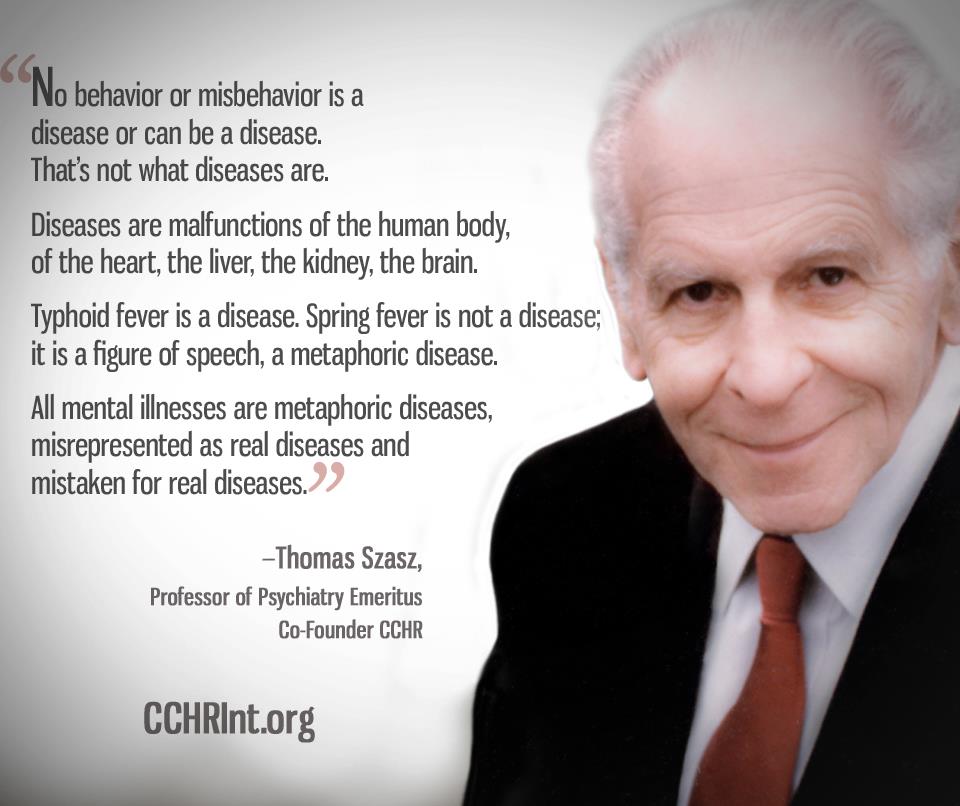
References:
[1] Allen J Frances M.D., “What’s in a Name?” Psychology Today, 5 Apr. 2015, https://www.psychologytoday.com/us/blog/dsm5-in-distress/201504/whats-in-name
[2] Christopher Lane, “The NIMH Withdraws Support for DSM-5: The latest development is a humiliating blow to the APA,” Psychology Today, 4 May 2013, https://www.psychologytoday.com/us/blog/side-effects/201305/the-nimh-withdraws-support-dsm-5
[3] Joanna Moncrieff, Ruth E. Cooper, Tom Stockmann, Simone Amendola, Michael P. Hengartner and Mark A. Horowitz, “The serotonin theory of depression: a systematic umbrella review of the evidence,” Molecular Psychiatry, 20 July 2022, https://www.nature.com/articles/s41380-022-01661-0
[4] Christopher Lane, “A Decisive Blow to the Serotonin Hypothesis of Depression,” Psychology Today, 19 July 2022, https://www.psychologytoday.com/us/blog/side-effects/202207/decisive-blow-the-serotonin-hypothesis-depression
[5] Kelly Patricia O’Meara, Psyched Out: How Psychiatry Sells Mental Illness and Pushes Pills That Kill (AuthorHouse, 2006), p. 44, citing: People Magazine, 11 July 2005
[6] “Scientists Find No Evidence That Depression Is Caused by “Chemical Imbalance” or Low Serotonin Levels,” SciTech Daily, 25 July 2022, https://scitechdaily.com/scientists-find-no-evidence-that-depression-is-caused-by-chemical-imbalance-or-low-serotonin-levels/
[7] Joanna Moncrieff, “Against the stream: Antidepressants are not antidepressants – an alternative approach to drug action and implications for the use of antidepressants,” BJPsych Bulletin, 2018 Feb; 42(1): 42–44. doi: 10.1192/bjb.2017.11, https://www.ncbi.nlm.nih.gov/pmc/articles/PMC6001865/
[8] Jeffrey R Lacasse; Jonathan Leo, “Serotonin and Depression: A Disconnect between the Advertisements and the Scientific Literature,” PLoS Med, 8 Nov. 2005, https://journals.plos.org/plosmedicine/article?id=10.1371/journal.pmed.0020392
[9] “Is Psychiatry Medical Science or a Pharmaceutical Marketing Campaign,” Mindbody Medicine Center, https://www.healmindbody.com/is-psychiatry-medical-science-or-a-pharmaceutical-marketing-campaign/
[10] Elliot Valenstein, Ph.D., Blaming the Brain—The Truth About Drugs and Mental Health, (The Free Press, Simon & Schuster Inc., New York, NY, 1998), p. 4
[11] “Does your child really have a behaviour disorder? A shocking book by a leading therapist reveals how millions of us – including children – are wrongly labeled with psychiatric problems,” Daily Mail, 6 May 2013, http://www.dailymail.co.uk/health/article-2320493/Does-child-really-behaviour-disorder-A-shocking-book-leading-therapist-reveals-millions–including-children–wrongly-labelled-psychiatric-problems.html#ixzz2SciDb8UA
[12] David Kaiser, “Commentary: Against Biologic Psychiatry,” Psychiatric Times, Dec. 1996, Vol. XIII, Issue 12
[13] Bruce Wiseman, Psychiatry: The Ultimate Betrayal, (Freedom Publishing, Los Angeles, California, 1995), p. 204, citing CCHR Interview with Ron Leifer, January 1994
[14] “Little evidence that chemical imbalance causes depression, UCL scientists find,” The Guardian, 20 Jul 2022, https://www.theguardian.com/society/2022/jul/20/scientists-question-widespread-use-of-antidepressants-after-survey-on-serotonin
[15] Lisa Cosgrove, Emily E. Wheeler, “Drug Firms, the Codification of Diagnostic Categories, and Bias in Clinical Guidelines,” University of Massachusetts Boston Scholar Works at UMass Boston, Fall 2013
[16] https://www.cchrint.org/2022/03/29/medicalizing-grief/ citing Ofer Zur, Ph.D., et al., “DSM-5: Diagnosing for Status and Money,” Zur Institute, https://www.zurinstitute.com/dsm-critique/
[17] Kelly Patricia O’Meara, Psyched Out: How Psychiatry Sells Mental Illness and Pushes Pills That Kill (AuthorHouse, 2006), p. 32
[18] https://www.cchrint.org/2010/07/29/the-guardian-mental-health-diagnoses-mask-the-real-problems-range-of-new-diagnoses-is-mythology-not-scientific-text/; Dorothy Rowe, “Mental health diagnoses mask the real problems,” The Guardian, 29 Jul. 2010, https://www.theguardian.com/commentisfree/2010/jul/29/mental-health-diagnostic-manual
[19] http://www.critpsynet.freeuk.com/Mosher.htm
[20] Thomas Szasz, Speech at Citizens Commission on Human Rights International Anniversary Gala, 2004; Thomas Szasz, A Lexicon of Lunacy, (Routledge, New York, NY, 2017)
[21] Allen Frances, “Psychiatric Fads and Overdiagnosis,” Psychology Today, 2 June 2010, http://www.psychologytoday.com/blog/dsm5indistress/201006/psychiatricfadsandoverdiagnosis; Gary Greenberg, “Inside the Battle to Define Mental Illness,” WIRED, 17 Dec. 2014, https://www.wired.com/2010/12/ff-dsmv/
[22] CCHR Interview with Dr. Colin Ross, 2004
[23] University of Liverpool, “Psychiatric diagnosis ‘scientifically meaningless,’” Science News, 8 Jul. 2019, https://www.sciencedaily.com/releases/2019/07/190708131152.htm
[24] University of Liverpool, “Psychiatric diagnosis ‘scientifically meaningless,’” Science News, 8 Jul. 2019, https://www.sciencedaily.com/releases/2019/07/190708131152.htm
[25] David Kaiser, “Commentary: Against Biologic Psychiatry,” Psychiatric Times, Dec. 1996, Vol. XIII, Issue 12
[26] University of Liverpool, “Psychiatric diagnosis ‘scientifically meaningless,’” Science News, 8 Jul. 2019, https://www.sciencedaily.com/releases/2019/07/190708131152.htm
[27] Dr. Tana Dineen, Ph.D., Manufacturing Victims, Third Edition, (Robert Davies Multimedia Publishing, 2001), p. 86
[28] https://www.cchr.org.uk/is-madness-a-disease/no-tests-to-diagnose-mental-illness/
[29] Jeffrey A. Schaler, Ph.D., “Good Therapy,” Mental Health Net – The InterPsych Newsletter, Volume 2, Issue 7, Aug-Sep, 1995
[30] https://www.cchrint.org/2016/02/11/psych-plan-for-subjective-depression-screening/; “Statement by David Kupfer, MD,” American Psychiatric Association, News Release No. 13-33, 3 May 2013, https://www.madinamerica.com/wp-content/uploads/2013/05/Statement-from-dsm-chair-david-kupfer-md.pdf
[31] “Two NIMH Directors Debunk DSM & Deplore Psychiatry’s Unscientific Modus Operandi,” AHRP, 8 May 2013, https://ahrp.org/two-nimh-directors-debunk-dsm-deplore-psychiatrys-unscientific-modus-operandi/
[32] Diagnostic and Statistical Manual of Mental Disorders Fourth Edition (DSM-IV), (American Psychiatric Association, Washington D.C. 1994), pp. 88-89
[33] Stefan P. Kruszewski, M.D., “Physicians: Prescribing Less May Improve Outcomes,” ABC News, 23 Feb. 2011
[34] “The Rise and Fall of ADHD,” Rense.com, 9 Oct. 2000, http://rense.com/general4/add.htm
[35] Mary Leonard, “Happy coincidence or sad commentary? Health: There’s a chance, but no hard proof, that Prozac can fix depression in children, too. But there are a few ethical questions to answer,” The Baltimore Sun, 17 Jun. 1997, https://web.archive.org/web/20210622163804/https://www.baltimoresun.com/news/bs-xpm-1997-06-17-1997168116-story.html
[36] “Father of ADHD calls himself a liar,” WND, 23 May 2013, http://www.wnd.com/2013/05/father-of-adhd-calls-himself-a-liar/#SAe7LssguLIzLtry.99
[37] https://www.cchrint.org/2022/03/21/adhd-marketing-brands-children-to-hook-them-on-psychostimulants/, Glen Owen, “‘Naughty child syndrome’ costs taxpayers 170m pounds,” Daily Mail, Jan. 29, 2006, https://www.dailymail.co.uk/news/article-375455/Naughty-child-syndrome-costs-taxpayers-170m.html
[38] Fred Baughman, Jr. “Is ADHD a proven, demonstrable disorder/disease/physical abnormality of the brain or body?” PLoS One, 21 June 2013, http://www.plosone.org/annotation/listThread.action;jsessionid=C3581861CCA33A4A27A8054EA9F29F2F?root=67377
[39] https://www.cchrint.org/issues/post-traumatic-stress-disorder-pathologizing-tragedy-and-war-to-sell-drugs/ citing Herb Kutchins, Stuart A. Kirk, Making Us Crazy, (The Free Press, New York, 2000), p. 125
[40] Herb Kutchins and Stuart A. Kirk, Making Us Crazy, (The Free Press, New York, 1997), p. 22
[41] Craig Newnes, “Brainwashed,” The Guardian, 10 Jan. 2002, https://www.theguardian.com/society/2002/jan/10/mentalhealth
[42] Shankar Vedantam, “Drug Ads Hyping Anxiety Make Some Uneasy,” The Washington Post, 16 July 2001, https://www.washingtonpost.com/archive/politics/2001/07/16/drug-ads-hyping-anxiety-make-some-uneasy/8fe2eea2-b780-48cd-9872-1d3802e83147/
[43] Gary Kohls, M.D., “The Tragic Story of Dr Loren Mosher’s Soteria Project and the Plot to Kill It,” The Duluth Reader, 19 Jan. 2017, https://duluthreader.com/articles/2017/01/20/107817-the-tragic-story-of-dr-loren-moshers-soteria
[44] Gary Kohls, M.D., “The Tragic Story of Dr Loren Mosher’s Soteria Project and the Plot to Kill It,” The Duluth Reader, 19 Jan. 2017, https://duluthreader.com/articles/2017/01/20/107817-the-tragic-story-of-dr-loren-moshers-soteria
[45] Lisa Cosgrove, Emily E. Wheeler, “Drug Firms, the Codification of Diagnostic Categories, and Bias in Clinical Guidelines,” University of Massachusetts Boston Scholar Works at UMass Boston, Fall 2013
[46] University College London, “Scientists Find No Evidence That Depression Is Caused by ‘Chemical Imbalance’ or Low Serotonin Levels,” SciTechDaily, 22 July 2022, https://scitechdaily.com/scientists-find-no-evidence-that-depression-is-caused-by-chemical-imbalance-or-low-serotonin-levels/
[47] Thomas A. Dorman, M.D., “Articles Related to Mind Control,” 29 Jan. 2002
[48] Allen Frances, M.D., “The past, present and future of psychiatric diagnosis,” World Psychiatry, Jun. 2013, https://www.ncbi.nlm.nih.gov/pmc/articles/PMC3683254/
[49] https://www.cchrint.org/2017/08/09/watchdog-group-alerts-parents-and-teachers-about-gifted-children-being-mislabeled-adhd-and-given-stimulant-drugs/ citing Allen Frances, M.D., “Giftedness Should Not Be Confused with Mental Disorder: We need to celebrate and tolerate individual difference,” Psychology Today, 14 Mar. 2013, https://www.psychologytoday.com/blog/saving-normal/201303/giftedness-should-not-be-confused-mental-disorder
[50] Allen Frances, “Does DSM-5 Have a Captive Audience?” Huffington Post, 4/14/2013, http://www.huffingtonpost.com/allen-frances/does-dsm-5-have-a-captive_b_3080553.html


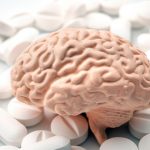
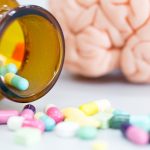

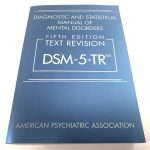

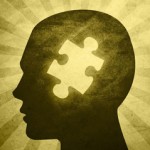
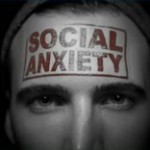
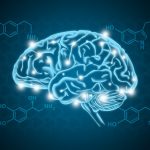
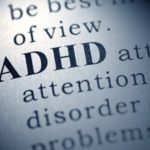
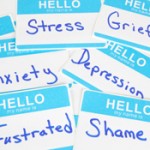
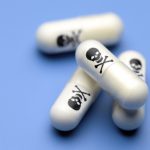
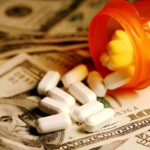
SHARE YOUR STORY/COMMENT